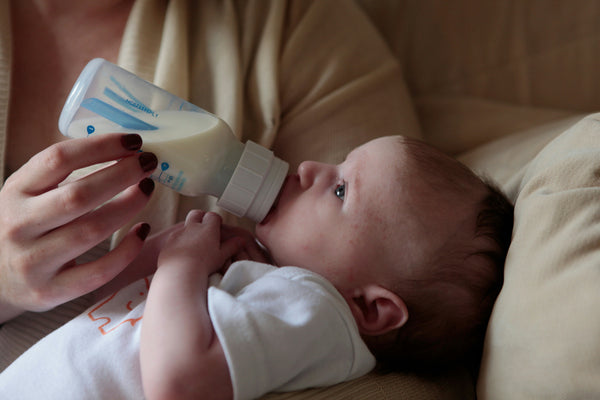5 Signs Your Kid is Constipated
share this article

Does your kiddo complain frequently about bloating or abdominal pain? Constipation in kids is a common condition. In fact, roughly 1 of every 20 doctor’s visits that kiddos make is due to constipation, according to the National Institute of Health. Identifying signs of constipation in kids is crucial for timely intervention and ensuring their comfort. Here are five key indicators that your kid might be experiencing constipation:
1. Infrequent Bowel Movements
One of the primary signs of constipation in kids is infrequent bowel movements. While the frequency can vary among kids, a noticeable change in your little one’s regular pattern, such as passing stool less than three times a week, might indicate constipation. Research studies reviewing kids and constipation show that irregular bowel movements are often a significant indicator of constipation in kids [1].
2. Hard or Painful Stools
If your kiddo is passing hard, dry, or unusually large stools, it could be a sign of constipation. Straining or discomfort during bowel movements is another common symptom. The American Academy of Pediatrics emphasizes that pain while passing stool can be a clear indication of constipation in kids.
Daily reads to help your little ones lead happier and healthier lives.
Join the
Happy Gut Club
Begin Health Expert Tip
Did you know that prebiotics can support symptoms from constipation in kids? Studies reveal that consuming prebiotics daily can help kids with softer and more frequent stools within six weeks [2]. Begin Health’s Growing Up Prebiotics makes it easy for kiddos to take a daily prebiotic - it’s tasteless and textureless, just add to your kiddo’s water or favorite beverage.
3. Abdominal Pain and Bloating
Kids experiencing constipation often complain of abdominal pain or discomfort. They might exhibit signs of bloating or feel full even after consuming small amounts of food. One study reports that constipation was the cause of acute abdominal pain in up to 50% of kids during a primary care visit [3].
4. Avoidance of Toilet
Some kids might intentionally avoid using the toilet, especially if they associate it with pain or discomfort due to constipation. They might withhold stool, contributing to the problem. Encouraging regular toilet habits and creating a comfortable environment for bowel movements is essential here to make potty time a happier experience.
5. Fecal Smearing or Soiling
In some cases, kids experiencing constipation might unintentionally soil their underwear due to fecal leakage or incomplete bowel movements. This can occur when hard stool accumulates in the rectum, leading to stool leakage around it [4].
If you notice these signs persisting over several days or weeks, it's crucial to consult with your kiddo’s primary healthcare physician. Addressing constipation in little ones involves a multifaceted approach, including both dietary and lifestyle changes. For more tips on how to support your kiddo’s digestive health, check out our blog 5 Healthy Habits for Kid’s Constipation Support.
Summary
Understanding signs of constipation in kids such as infrequent bowel movements, painful stools, abdominal pain, avoidance of the toilet, and fecal smearing helps provide parents with the knowledge to take proactive steps toward their little one’s digestive wellness. Always consult a healthcare professional for proper diagnosis and guidance tailored to your kiddo’s specific needs.
















